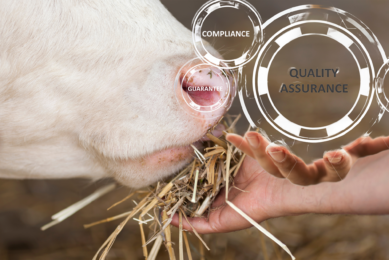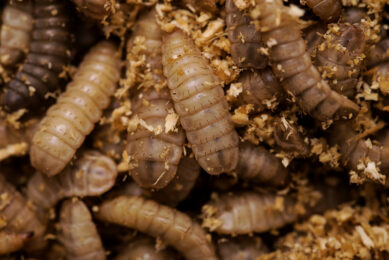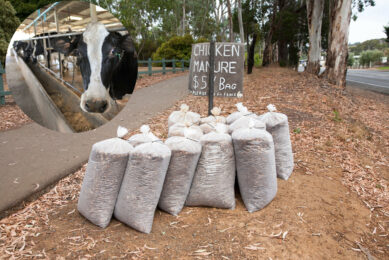Newport Mills upgrades and invests to serve Caribbean area

Investing more than US$10 million over the past five years ensured that Nutramix feeds, the brand name for feeds from Newport Mills in Jamaica, are produced in an ultra-modern, ultra-safe facility. The company intends to grow in the market and be able to export to surrounding islands in the Caribbean.
Newport Mills Ltd. manufactures a full range of quality poultry, pig, dairy and beef-cattle, horse, fish and dog feeds for the groups integrated companies and external customers. The feeds are marketed under the brand name ‘Nutramix’, and are made from imported high quality raw materials. The products are distributed locally via farm stores or directly to end users. Feeds are also exported to the Caribbean nations and beyond. Because of economies of scale these smaller Caribbean countries do not have the capacity to economically run a mill for feeds.
Newport Mills was established in the early 1980s to supply feeds to the Caribbean Broilers Poultry division as the company faced inconsistency in feed supply and quantity. By 1988, several livestock farmers began requesting custom made feeds for their own operations and the company expanded production to meet this increased demand. Within five years Newport Mills grew to become the second biggest supplier of feeds in Jamaica. A major expansion of storage and production capacity at the Kingston plant was completed in late 2007 and today, the production facility in Kingston is the most modern in the Caribbean.
Safe feed as security
“The safe feed we are offering Jamaican farmers and consumers is helping to secure the future of our livestock sector,” said Dr Velton Gooden, quality systems manager at Newport Mills. “We believe this is of critical importance in ensuring our producers and consumers can be integrated members of the safe-food chain. International food-safety standards are becoming more and more demanding. Very soon, we will only be able to market livestock products from farms and processing plants that can guarantee that the entire production process is safe,” he added.
Recently, corporate affairs manager Keith Amiel of Newport Mills was interviewed by Jamaican newspaper The Gleaner and was asked what substantial difference the $10 million investment made to the Nutramix line. Amiel said: “We produce over 26 different types of feed and we needed to have a facility that would produce consistent quality feed in the quantities that are required. Computerised systems have replaced the manual systems and more sophisticated quality control equipment has come into the production process. We test every batch of feed and we are able to identify every bag of feed from the mill to the farm. Traceability is very important and it is a prerequisite to meeting international standards to be able to export.”Amiel expects that return on investment will come from increased and consistent supply. “We don’t have to double the price because we spent some money. It is not taking away from the competitor either. It is growing the industry and this will happen when we reduce our dependency on imports. The objective is to produce enough to have some to export, expand the industry, not take away from the competitor. Any increase in price is directly related to change in the price of inputs – the price of corn, oil, the exchange rate.”According to Amiel, Jamaica uses about 360,000 tonnes of feed per year. Newport is operating at approximately 50% capacity supplying 45% of the market and is second to its competitor, Hi-Pro, who produces the other 55%. The upgrading of the mill has almost doubled capacity to turn out up to 260,000 tonnes per year.
Monthly, 80 twenty-foot containers of Nutramix feeds are exported to nine Caribbean countries – Aruba, Curacao, Antigua, St Lucia, Barbados, Trinidad, Dominica, Cayman and Suriname. There are two other potential markets in the Caribbean – one is Haiti and the other is Cuba. Haiti has over 10 million people and Cuba has nearly nine million people. Antigua and Dominica with 45,000 people are too small and Trinidad also lacks a profitable scale.
Expansion constraints
Expansion of feed production is constrained by the size of the livestock population on the island. Jamaica imports a lot of meats. “If you look at goat meat, lamb, mutton, we import up to J$150 million (€1.3 million) every month from New Zealand and Australia. And it is a sin, because goat and sheep, like cattle, are ruminants; they can digest fibre and grass – and in the tropics nothing grows like bush and grass,” Amiel said. “We can start to grow the goat and cattle livestock by using the raw material we have. We could also do fish, tilapia, also dog food and food for pets. Our plant has the capacity to make these as well.”
Expansion of feed production is constrained by the size of the livestock population on the island. Jamaica imports a lot of meats. “If you look at goat meat, lamb, mutton, we import up to J$150 million (€1.3 million) every month from New Zealand and Australia. And it is a sin, because goat and sheep, like cattle, are ruminants; they can digest fibre and grass – and in the tropics nothing grows like bush and grass,” Amiel said. “We can start to grow the goat and cattle livestock by using the raw material we have. We could also do fish, tilapia, also dog food and food for pets. Our plant has the capacity to make these as well.”











